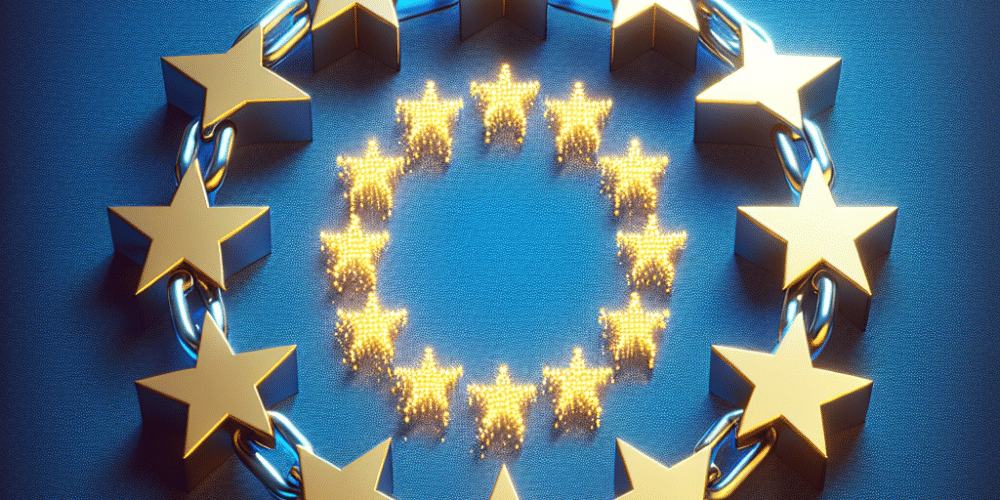In a groundbreaking development from Brussels, the European Commission has announced a new initiative aimed at integrating blockchain technology into public sector services across the European Union. Titled “Blockchain for EU”, the initiative seeks to standardize and accelerate the use of distributed ledger technology (DLT) within member states, enhancing transparency, efficiency, and trust in public services.
Leveraging Blockchain for Enhanced Public Trust and Efficiency
The initiative comes at a pivotal time as EU member states seek innovative solutions for secure, transparent governance and public service delivery amidst growing global digital transformation. Blockchain, renowned for its security and decentralized nature, is seen by the EU Commission as a tool that can significantly reduce fraud, cut red tape, and increase the interaction between the citizens and their governments.
“Blockchain technology offers unique identities, and we are looking to harness this feature to curb identity theft and offer a seamless way for our citizens to interact with governmental and public services,” stated EU Commissioner for Digital Economy and Society, Mariya Gabriel, during the press conference. “We envision a future where every EU citizen will have their data securely stored and easily accessible on a blockchain, revolutionizing the way personal data is managed in the EU,” she added.
Key Features of the “Blockchain for EU” Initiative
The “Blockchain for EU” initiative is set to be rolled out in phases. The first phase will focus on identity management and validation processes, offering EU citizens blockchain-based identity services that can be used across borders within the bloc. This will significantly ease the process of documents verification, property registration, and cross-border business operations.
Additionally, the second phase will explore blockchain applications in healthcare, specifically in the management of medical records, thus ensuring that they are tamper-proof and readily accessible by authorized personnel. This phase also includes leveraging blockchain for public procurement processes to improve transparency and reduce the potential for corruption.
Moreover, the EU is closely examining the environmental impact of blockchain technology, especially concerning energy consumption. Plans are in place to develop a framework to support sustainable blockchain practices, ensuring energy-efficient consensus algorithms like Proof of Stake (PoS) are prioritized over the more energy-intensive Proof of Work (PoW) algorithms.
Industry and Public Reactions
The announcement has been met with a mix of optimism and caution among industry experts. Dr. Fiona Delaney, founder of AgriLedger, a blockchain solution for the agriculture supply chain, applauded the initiative. “This is a significant step that not only legitimizes blockchain technology but also propels it into mainstream public sector applications,” Delaney commented.
However, some voices raise concerns about privacy and the potential for extensive personal data collection. “While blockchain does offer enhanced security, the EU must ensure robust regulations that protect personal data and prevent any possible misuse,” stated Henrik Oster, a privacy law expert at the University of Copenhagen.
Global Implications and Future Prospects
The “Blockchain for EU” initiative is likely to set a benchmark for other regions. With this move, the EU is positioning itself as a leader in the adoption of blockchain technology in governance. This could potentially spur similar initiatives globally as countries seek to harness the technology’s potential while addressing cybersecurity and privacy concerns.
Looking ahead, the European Commission plans to establish a committee to oversee the implementation of blockchain projects and ensure they align with EU standards on human rights and privacy. Additionally, an annual Blockchain for EU summit will be convened, starting in 2024, to evaluate progress, discuss challenges, and plan future expansions.
This initiative not only marks a significant milestone for blockchain technology but also paves the way for its broader adoption in public services worldwide. As the EU navigates the complexities of implementing such a wide-scale technology overhaul, the global community watches closely, anticipating the ripple effects on global digital governance strategies.




